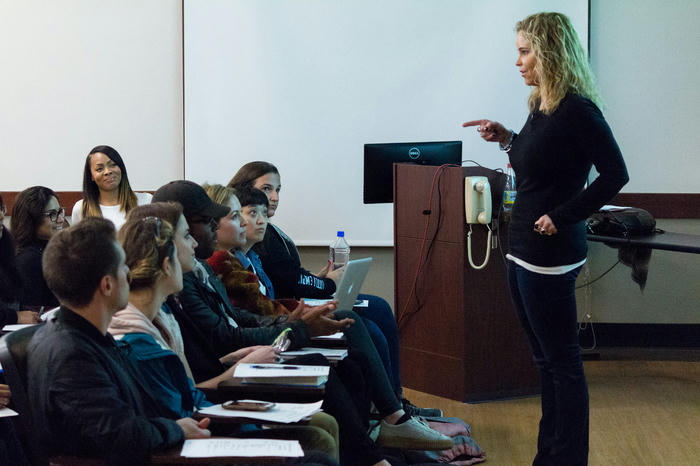Legal Courses Decoded: One-Stop Certification & the Science of Law Mastery
Law shapes societies, yet mastering its intricacies often feels like unraveling an ancient cipher. Traditional legal education, with its labyrinthine pathways and towering costs, can deter even the most determined learners. Enter integrated legal platforms—modern solutions that bundle certification, specialized training, and practical skill-building into a single journey. These programs are not just about earning credentials; they decode the science of law, transforming abstract principles into tools for real-world impact. In an era where technology, climate policies, and global trade demand agile legal minds, accessible education is no longer optional—it’s essential.
The Appeal of One-Stop Legal Certification
One-stop legal programs consolidate learning into cohesive curricula, eliminating the need to patch together courses from disparate sources. For instance, a platform might offer modules spanning contract law, dispute resolution, and regulatory compliance, culminating in a recognized certification. This approach saves time and reduces costs, as bundled programs often cost less than individual courses. Career-focused learners benefit from alignment with industry needs: a compliance officer certification, for example, might include training on anti-money laundering (AML) frameworks directly applicable to financial institutions.

The Science Behind Legal Courses: Breaking Down Complexity
Legal education’s “science” lies in its structured approach to dissecting complex systems. Core disciplines like criminal law or corporate governance form the bedrock, while emerging fields such as AI ethics or cybersecurity law reflect modern challenges. Courses demystify these topics through pedagogy tailored to adult learners. Interactive case studies simulate courtroom strategies, while moot court exercises hone argumentation skills. For example, a module on intellectual property might use patent dispute simulations to teach students how to navigate filings and litigation.
Cognitive frameworks also play a role. Courses train learners to analyze precedents, identify logical fallacies, and construct airtight arguments—skills transferable to industries beyond law, such as policymaking or corporate leadership.

Maximizing Knowledge from Legal Courses
To extract full value, learners must engage actively. Participating in mock trials or peer discussions reinforces theoretical knowledge. Contextual learning—such as tying coursework to current events like high-profile mergers or data privacy scandals—bridges theory and practice. Cross-disciplinary connections further deepen understanding; a course on environmental law gains richness when linked to climate science or economics.
Digital tools amplify outcomes. AI-driven platforms analyze writing patterns to provide feedback on legal drafting, while databases like Westlaw offer instant access to case law. Mentorship networks, often included in premium programs, connect learners with seasoned attorneys for career guidance.
Case Study 1: From Marketing to Compliance
Anna, a mid-career marketing executive, sought to pivot into the legal sector but lacked formal training. Enrolling in a six-month online certification program specializing in corporate compliance, she completed modules on AML, GDPR, and risk management. Capstone projects required her to draft compliance policies for hypothetical fintech firms, simulating real-world scenarios. Within a year of certification, Anna secured a role as a compliance analyst at a multinational bank, where she now implements training programs aligned with global regulations.
Case Study 2: Graduate to Tech-Legal Hybrid
Jared, a recent sociology graduate, struggled to break into competitive legal roles. He pursued a niche certification in intellectual property (IP) law through a platform offering courses co-designed by tech attorneys. Courses covered patent filing, digital copyrights, and licensing agreements, with assignments involving mock negotiations for software licensing deals. Jared’s final project—a strategy memo for protecting AI-generated content—caught the attention of a legal tech startup. Today, he advises clients on IP issues at the intersection of law and artificial intelligence.

Navigating Challenges
Dense material and limited hands-on experience pose common hurdles. To mitigate overwhelm, learners should prioritize programs with modular designs, allowing them to tackle topics incrementally. Platforms offering internships or partnerships with law firms provide practical exposure, while virtual legal hackathons foster collaborative problem-solving.
Future Trends in Legal Education
The sector is evolving rapidly. AI-driven adaptive learning tailors content to individual progress, flagging knowledge gaps in real time. Micro-credentials—such as a three-week course on blockchain contracts—cater to professionals seeking hyper-specialized skills. Globalization is another frontier: platforms now offer certifications in cross-border fields like ASEAN trade law or EU digital regulations, preparing learners for transnational careers.
Conclusion
Integrated legal courses are reshaping education, merging certification with cutting-edge pedagogy to democratize expertise. For career changers like Anna or hybrid professionals like Jared, these programs offer a bridge to relevance in a dynamic field. As legal landscapes grow more complex, the ability to decode law’s “DNA” becomes a career superpower. The next step? Exploring accredited platforms that turn ambition into mastery—one lesson at a time.
“Law isn’t just about rules—it’s about understanding the DNA of society. Master it, and you master your future.”
